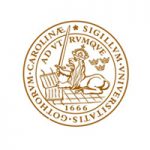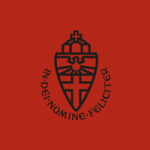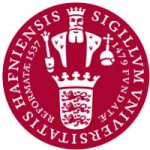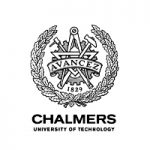项目介绍
Lund University was founded in 1666 and is repeatedly ranked among the world’s top universities. The University has around 47 000 students and more than 8 800 staff based in Lund, Helsingborg and Malmö. We are united in our efforts to understand, explain and improve our world and the human condition.
Lund University welcomes applicants with diverse backgrounds and experiences. We regard gender equality and diversity as a strength and an asset.
Description of the workplace
The research at the division of Solid State Physics within the Physics Department is focused around different aspects of nanophysics, ranging from materials science to quantum physics, to different applications. The division plays a central role in NanoLund, the major interdisciplinary research environment within nanoscience and nanotechnology at Lund University.
Research on semiconductor nanowires is an area where the division of Solid State Physics is at the international forefront. The research includes both material growth and characterization of nanowires, as well as their use in different devices and in, for example, experiments in fundamental quantum physics and quantum technology. Theoretical research within nanowires, quantum science and quantum technology is conducted in close collaboration with the experimental activities.
More information can be found at: www.ftf.lth.se, www.nano.lu.se
Work duties
The main duties of doctoral students are to devote themselves to their research studies which includes participating in research projects and third cycle courses. The work duties can also include teaching and other departmental duties (no more than 20%).
The project is within theoretical research in quantum technology, i.e., technology that uses unique quantum mechanical properties like superpositions and entanglement to enable performance or functionalities that would not be possible with classical physics. More specifically, this project deals with connections between machine learning and quantum technology. This can be about using machine learning techniques to design, control or optimize quantum systems and their properties. It can also be about using quantum systems to more efficiently solve machine learning tasks. The research will be based on both analytical methods and numerical calculations.
Admission requirements
A person meets the general admission requirements for third-cycle courses and study programmes if he or she:
- has been awarded a second-cycle qualification, or
- has satisfied the requirements for courses comprising at least 240 credits of which at least 60 credits were awarded in the second cycle, or
- has acquired substantially equivalent knowledge in some other way in Sweden or abroad.
A person meets the specific admission requirements for third-cycle studies in Physics if he or she has:
- at least 30 second-cycle credits of relevance to the subject, of which at least 15 credits shall comprise a second-cycle degree project, or
- an MSc in engineering physics or an associated field, or a Master’s degree in physics or an associated field.
Finally, the student must be judged to have the potential to complete the programme.
Additional requirements:
- Very good oral and written proficiency in English.
Basis of assessment
Selection to postgraduate studies is based on the expected ability to perform well in the studies. The evaluation of the ability to perform well is based primarily on the results of studies at the basic and advanced levels, in particular:
- Knowledge and skills relevant to the thesis project and the subject of the study.
- An assessment of ability to work independently and to formulate and tackle research problems.
- Written and oral communication skills
- Other experience relevant to postgraduate studies, such as professional experience.
Other merits:
- The degree should include courses within theoretical physics, quantum mechanics and solid-state physics.
- Abilities and experience from theoretical and mathematical work will be essential. Courses within advanced quantum mechanics for condensed matter physics are of great value, as is thesis project or other independent research project within theoretical physics.
- Experience from machine learning, programming and numerical work is beneficial.
Consideration will also be given to good collaborative skills, drive and independence, and how the applicant, through his or her experience and skills, is deemed to have the abilities necessary for successfully completing the third cycle programme.
Terms of employment
Only those admitted to doctoral studies may be employed as doctoral students. The doctoral programme is four years of full-time study. In the case of teaching and other departmental work, employment is extended accordingly, up to a maximum of five years (i.e. a maximum of 20%). Employment as a doctoral student is regulated in the Higher Education Ordinance (1993:100), Chapter 5, Sections 1-7.
Instructions on how to apply
Applications must be written in English. The application must include a personal letter explaining why you are interested in the position and how the research project matches your interests and educational background. The application must also contain a CV, diploma or equivalent, a copy of the thesis or equivalent, alternatively a summary if the work has not been completed, as well as anything else you wish to refer to (grade transcripts, contact information for your references, letters of recommendation, etc.).
Applicants are required to answer the job specific questions in the first step of the application process.
Welcome with your application!
The English version of this announcement is an interpretation of national formalities expressed in the Swedish text. In case of uncertainties, the Swedish text applies.
LTH is Lund University’s Faculty of Engineering. At LTH we educate people, build knowledge for the future and work hard for the development of society. We create space for brilliant research and inspire creative advancements in technology, architecture and design. We have nearly 10,000 students. Every year, our researchers – many of whom work in world-leading profile areas – publish around 100 theses and 2 000 scientific findings. In addition, many of our research and degree projects are transformed into innovations. Together we explore and create – to benefit the world.
The Department of Physics is with a staff of about 400 scientists and educators one of the largest departments within Lund University. There are seven research divisions and a number of research centra within the department. The research activities at the department cover a broad spectrum of modern physics. www.fysik.lu.se/english.
联系方式
电话: +46 (0)46 222 0000相关项目推荐
KD博士实时收录全球顶尖院校的博士项目,总有一个项目等着你!






